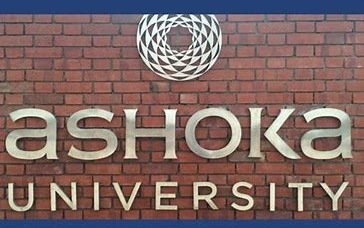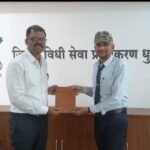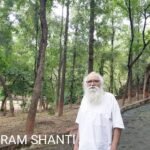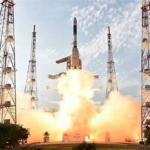
August 2, 2023
Ashoka University, a prestigious private institution, finds itself embroiled in a political controversy after a research paper authored by one of its faculty members sparked a fierce debate between the Congress and the Bharatiya Janata Party (BJP). The paper, titled “Democratic Backsliding In The World’s Largest Democracy,” authored by Assistant Professor of Economics, Sabyasachi Das, explores the concept of election manipulation and its impact on closely contested constituencies.
According to the paper, the BJP’s disproportionate wins in closely contested constituencies are particularly concentrated in states ruled by the party at the time of the election. Mr. Das argues that the density of the incumbent party’s win margin variable experienced a discontinuous jump at the threshold value of zero, suggesting that the BJP secured more victories in constituencies where it was the incumbent party and the competition was fierce. The research also delves into the presence of state civil service officers from BJP-ruled states as election observers, implying that manipulation might be concentrated in constituencies with a high share of such observers.
The paper’s findings have attracted sharp reactions from both sides of the political spectrum. Congress MP from Kerala, Shashi Tharoor, took to Twitter, urging the Election Commission and the Government of India to provide detailed explanations to refute the arguments presented in the research. Tharoor stressed that the evidence presented by the paper cannot be easily dismissed and called for a serious consideration of its implications.
On the other hand, BJP MPs, including Nishikant Dubey from Jharkhand and Delhi’s Pravesh Singh Verma, questioned the research’s validity, accusing it of discrediting India’s vibrant poll process without a substantial basis. Verma expressed concerns over how such research could undermine India’s democratic framework and called for continued discussions on the matter.
Amid the ongoing debate, Ashoka University issued an official statement clarifying that the research paper in question is still undergoing a critical review process and has not yet been published in any academic journal. The university emphasized its commitment to excellence in teaching and research across multiple disciplines and asserted that it does not direct or approve specific research projects by individual faculty members. The institution also stated that social media activity or public activism by faculty, students, or staff does not reflect the university’s official stance.
Co-founders of Ashoka University, Sanjeev Bhikchandani and Ashish Dhawan, were reached out to for comment, with Bhikchandani reaffirming the university’s statement and refusal to comment further on the matter.
The findings of the research paper have ignited a passionate discussion within India’s political landscape, and the nation eagerly awaits the paper’s formal publication and peer review, which will further determine its impact on the understanding of the country’s electoral processes. Until then, the contentious research remains a focal point of debate between the Congress and the BJP, fueling the ongoing political slugfest.










